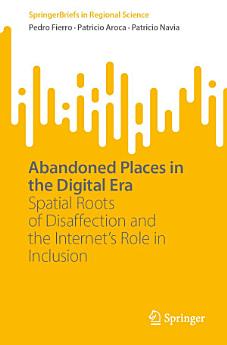Abandoned Places in the Digital Era: Spatial Roots of Disaffection and the Internet’s Role in Inclusion
About this ebook
Using Chile’s Valparaíso region as a case study, the book applies its framework to a context characterized by a strong party system, robust institutions, and high Internet penetration. Chile’s recent political crisis, marked by widespread dissatisfaction, makes this analysis particularly relevant. Valparaíso, with its unique role as the host of the National Congress and as a focal point of the 2019 social uprising, serves as a microcosm for understanding the spatial dimensions of political discontent in digitally connected societies.
About the author
Pedro Fierro is an assistant professor at the Business School of Adolfo Ibáñez University, a visiting fellow at the London School of Economics, and an adjunct researcher at the Millennium Nucleus for the Study of Politics, Public Opinion, and Media in Chile. He also conducts research at the P!ensa Foundation.
Patricio Aroca is a professor at Universidad Andrés Bello and a visiting associate professor at the University of Illinois Urbana-Champaign. He holds an M.A. in Economics from Universidad de Chile, as well as a M.Sc. in Policy Economics and a Ph.D. in Economics from the University of Illinois Urbana-Champaign.
Patricio Navia is a full professor of Political Science at Universidad Diego Portales in Chile and a clinical professor of Liberal Studies at New York University. He earned his Ph.D. in Politics from New York University in 2003 and is a prolific author on topics including democratization, elections, and public opinion.




